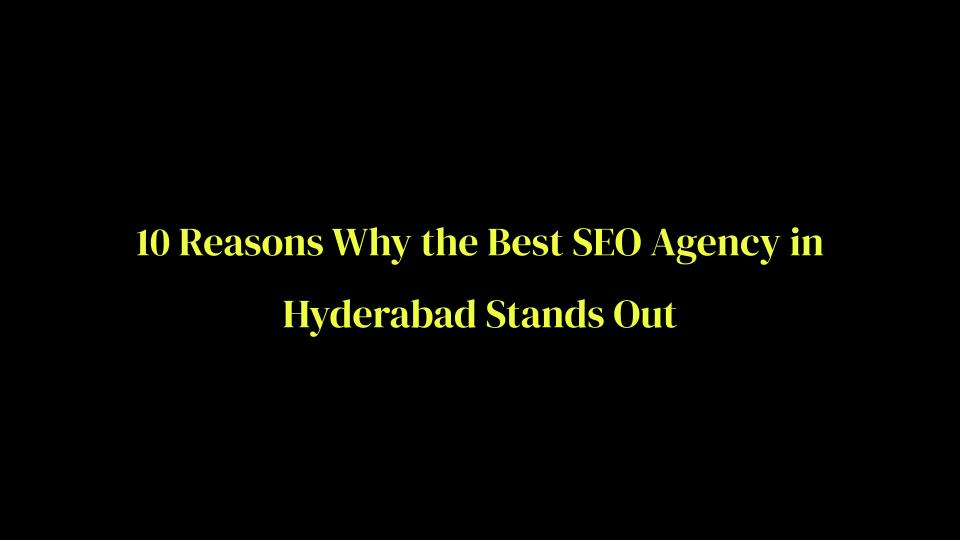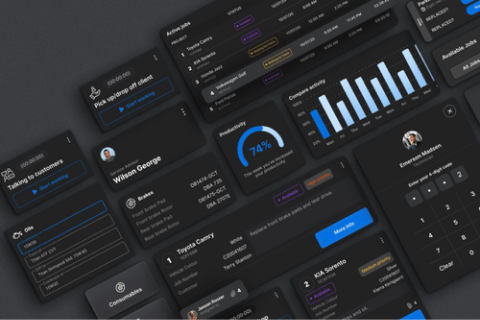Let’s be honest—job hunting in 2025 is wild. Hundreds of people apply for the same position, and most never hear back.
According to a study by Jobscan, over 98% of Fortune 500 companies use AI-powered applicant tracking systems (ATS) to screen resumes. So if you’re not using AI, you're already behind. But don’t worry—we’re about to fix that.
This article also explains how AI helps optimize your applications. The 7 tools and strategies go way beyond resume fluff. Ready to outsmart the bots (and maybe a few recruiters too)? Let’s go.
Why Using AI to Find a Job Is a Smart Move Now

Finding a job today is tough. You send job applications, but no one replies. That’s where using AI to find a job helps. AI tools can write your resume, fix your cover letter, and even find the right job listings for you. They save time and make your job search smarter.
Tools like ChatGPT and LinkedIn AI also do data analysis to match you with jobs you’ll actually like. And guess what? Companies are now expecting tech-savvy people who understand seo strategies . So, learning AI? Smart move.
What the Modern Job Application Process Looks Like in 2025

In 2025, the job application process is digital, fast, and powered by AI across most industries. Whether you're in tech, healthcare, marketing, or finance, companies now expect tailored, keyword-rich applications that utilize effective seo tools .
AI often reviews resumes before humans do. Customization and personal branding matter more than ever, including the use of backlinks .
1. Online Applications Are the Norm: Nearly every industry—from tech to retail—uses online platforms for hiring. Candidates apply through:
- Company career pages
- LinkedIn or other job boards
- ATS-powered portals (Applicant Tracking Systems)
More than 98% of Fortune 500 companies utilize ATS to screen resumes (Jobscan, 2024).
2. AI Screens First, Humans Later: Across fields like marketing, healthcare, and engineering, your resume is often seen by software before a recruiter. AI checks for:
- Keywords from the job description
- Formatting and structure (PDFs often preferred)
- Relevant skills and education
Tip: Use AI resume builders to beat the filters.
3. Tailored Resumes & Cover Letters Matter: Industries now expect custom applications. Generic files don’t work anymore.
For example:
- Creative fields want portfolios and storytelling
- Tech companies want quantifiable achievements
- Healthcare prefers certifications and clean formatting
4. Skill-Based Hiring Is Growing: Companies in digital marketing, IT, and even finance are shifting toward:
- Skills-first hiring (rather than just degrees)
- Case studies, take-home tasks, and simulation tests
- AI tools to assess writing, logic, or coding ability
Don’t forget, AI can also help you practice your communication skills for interviews, giving you feedback and helping you refine your pitch.
By embracing AI in your job search process, you’ll streamline your efforts, enhance your visibility, and position yourself as a forward-thinking candidate ready for your next role.
Why Generic Cover Letter No Longer Work—and How AI Fixes That

Most hiring managers can spot a generic cover letter in seconds. In 2025, it’s not enough to say “I’m a good fit.” Companies want specifics. They look for relevant skills, real results, and custom messaging. A plain letter gets ignored.
But AI makes this easy for you. With smart AI tools, you can write personalized, keyword-rich letters in minutes. These match the job listings and reflect your optimization efforts to get past filters.
Here’s How AI Helps You Write a Better Cover Letter:
- It pulls keywords from the job description
- Highlights your resume achievements clearly
- Adjusts tone and format based on the company type
- Makes sure you show the right skills and experience
- Helps with spelling, structure, and personalization
According to Jobvite, 47% of recruiters reject applications due to generic messaging.
Top 7 AI Tools to Use for Your Job Application Process
How to Use AI Tools for Your Job Search Goals

1. Use AI to Write a Strong Resume and Cover Letter: Sending the same resume and cover letter to every job doesn’t work anymore. AI can help you write customized ones in minutes.
- Use AI resume builders like Rezi or Teal
- Add relevant skills and use keywords from job listings
- Let AI tools fix grammar and format issues
- Make sure your cover letter matches the company’s tone
- Pro Tip: Recruiters often spend less than 7 seconds scanning a resume (Ladders, 2024). So, make it count.
2. Find the Right Job Listings with AI Search Tools: There are thousands of jobs out there, but most people apply to the wrong ones. AI search platforms filter listings based on your background in web development and skills.
- Use tools like Simplify.jobs or LinkedIn AI job match
- Use AI to research a new company before tailoring your application. Let the tool match you with the best-fit job listings.
- Filter by company size, average annual salary, pay, or industry using AI-powered filters
- Save time by skipping spammy or irrelevant jobs
3. Practice for Interviews with AI Simulations: AI doesn’t just help before you apply—it helps after, too. You can now use tools to get ready for interviews and improve your answers.
- Try mock interviews using ChatGPT
- Record yourself and get feedback on tone and words
- Ask AI to give you likely questions based on the job description
- Practice talking about your important skills and past wins
- A deep understanding of job requirements can boost your interview confidence.
4. Track Applications and Improve with Data: Keeping track of where you applied is key. AI tools make it simple.
- Use apps that organize your job applications in one place
- See which resumes worked and which didn’t
- Use data analysis to find patterns—maybe you hear back more with certain keywords or skills listed
- Use data to identify areas where your resume needs improvement. The more data you collect, the smarter your next move becomes.
5. Build Online Visibility That Attracts Employers: Want potential employers to come to you? That’s possible.
- Use AI to help build a LinkedIn profile that ranks in search engine results. Search results matter—optimize your profile to show up on page one.
- Write blog posts or build a personal site with help from AI tools
- Use basic search engine optimization to boost your profile or site visibility
- Add your work samples, certifications, and achievements
AI Resume vs Traditional Resume: What's Different?

An AI resume is built using smart tools that help match your resume with the right job listings. Instead of writing everything yourself, you use an AI tool to help you choose the best words, format, and layout. This helps you get past company filters like ATS (Applicant Tracking Systems), which scan for keywords.
Key Differences Between AI Resume and Traditional Resume
- Keyword Optimization
- AI resumes include keywords from the job search listing
- They help improve search engine optimization of your profile
- Formatting
- Traditional resumes may look outdated
- AI resumes use modern designs that work on all devices and platforms
- Personalization
- AI tools customize your resume for each job application
- Traditional resumes are often copy-paste templates
- ATS Compatibility
- AI resumes are built to pass search engines and applicant filters
- Old resumes may get rejected even if you're qualified
- Speed & Simplicity
- AI saves time by helping you build resumes quickly
- You focus on your skills, not formatting headaches
Smart Strategies for Using AI to Find a Job

1. Align Your Resume with SEO Job Titles and Keywords
- Many companies use software called Applicant Tracking Systems (ATS). These systems scan your resume for job titles and keywords that match the job posting, such as "SEO specialist," "SEO manager," or "Digital Marketing Specialist."
- You can use AI tools to scan job listings, find common phrases, and match them with your own skills and relevant experience. This helps your resume show up in search engine results when recruiters search for candidates.
Bonus tip: Use titles like “SEO Specialist,” “SEO Manager,” or “Digital Marketing Specialist” if they match your experience. These are the terms search engines and ATS tools look for. Working with an experienced SEO consultant can help improve your job visibility online.
2. Use AI for Ongoing Keyword Research and Job Market Trends
- Job markets change fast. Search trends and hot skills shift all the time. Knowing what’s “in demand” helps you stay ahead. AI tools help track latest trends in SEO and job market skills.
- These tools can also help you explore different SEO and digital marketing careers by identifying in-demand skills and job opportunities.
- AI can do keyword research for your industry. You’ll discover what SEO professionals and marketing teams are looking for right now.
3. Use Local SEO and Optimize Your LinkedIn Profile for Search Engines
- Recruiters often search locally. That means your location and LinkedIn profile need the right keywords too. AI can update your profile with better job titles, local keywords, and phrases that boost online visibility.
- Add your city and job title in your headline. Use bullet points that include SEO tools, job search achievements, and marketing initiatives.
- Highlight roles like content writers to showcase your expertise in SEO-related positions. Include your bachelor’s degree and certifications for added credibility.
4. Build a Personal Website That Ranks
- It’s like a digital resume—but better. You can show off your skills, projects, and certifications all in one place. When search engines like Google crawl your site, they help potential employers find you.
- Use platforms like Wix or WordPress. No coding needed. Add your resume, cover letter, and job listings you’ve applied for. Use keywords from job ads so your site shows up in search engine results. Connect it to your LinkedIn profile for added trust.
5. Use Data Analysis to Target the Right Companies
- AI tools can now scan job platforms, websites, and even social media to show you which companies are hiring, how often, and what they’re really looking for.
- Use tools like Google Search Console or Google Analytics to track what recruiters look at. Analyze job search trends and company reviews. Match your skills with what’s in demand in each job application process.
- SEO consultants also leverage these data-driven methods to identify the best opportunities and develop effective strategies for their clients.
Do You Need a Bachelor’s Degree? What AI Can (and Can’t) Replace
Not every job needs a bachelor’s degree today—especially with AI tools growing fast. Some companies now care more about your skills in search engine optimization seo than your school.
AI can help write your resume, prepare a cover letter, and find the best job listings fast. But it can’t replace real-world experience or your human touch. Roles that need deep thinking, teamwork, or creativity still need formal education or training.
If you're doing a job search using AI, focus on learning relevant skills and building a strong portfolio—with or without a degree.
How to Gain Experience Before Landing the Job (with Help from AI)

1. Build a Sample Project with AI Tools: Pick a problem. Use an AI tool like ChatGPT or Canva to solve it and increase visibility in your field . For example, create a sample marketing campaign or build a mockup website. This shows potential employers what you can do.
2. Simulate Real Job Tasks: Use tools to mimic tasks from real job listings. Practice writing a cover letter, crafting SEO-friendly blog posts, or analyzing data. This gives you confidence—and something to show.
3. Offer Free Help to Local Businesses or Nonprofits: Many small companies need digital marketing or content help. Offer to assist them with SEO, website content, or analytics. This helps your resume while supporting your community.
4. Use AI to Practice Interview Questions and Case Studies: Worried about interviews? You’re not alone in preparing for those competitive seo jobs . Use AI to role-play common job application process questions or mock case studies. It’s like having a private coach.
5. Start a Niche Blog or LinkedIn Series: Share what you learn about search engine optimization, resume tips, or job search stories. This boosts your online visibility and builds a personal brand.
6. Reverse-Engineer Job Descriptions with AI: Use AI to break down job listings. Learn what skills are repeated. Build those skills—one by one. This also helps with keyword research for your resume.
7. Take AI-Powered Micro-Internships or Freelance Gigs: Sites like Parker Dewey offer short gigs. Use AI to complete tasks faster as an seo manager . It’s real experience—and a chance to gain experience that counts.
Real Case Studies: How AI Helped Job Seekers Break Through

1. Breaking Into Digital Marketing with AI-Personalized Outreach
- Profile: Priya, a recent graduate with no agency experience
- Challenge: Competing against candidates with years of digital marketing work
- Strategy:
- Used an AI tool to tailor her resume and cover letter for each marketing role
- Leveraged Google Trends to align her resume with current digital campaign skills
- Used ChatGPT to draft outreach messages to agencies and startup founders
- Result: Priya got her first digital marketing job within 4 weeks—with a startup that appreciated her AI-backed initiative and personalized pitch.
2. Freelance SEO Content Writer Lands Clients Using AI Optimization
- Profile: Jay, a freelance SEO content writer looking to scale his income
- Challenge: Low website traffic, limited inbound leads
- Strategy:
- Built a personal portfolio website and used AI to optimize it for SEO
- Used ChatGPT and Surfer SEO to create keyword-rich blog posts and samples
- Added structured data, internal links, and AI-optimized job pitch templates
- Result: Jay’s site began ranking for “freelance SEO writer” and related queries. He now gets consistent inquiries through organic traffic and LinkedIn.
Many companies are actively hiring SEO specialists who can blend technical skill with content knowledge.
3. Transitioning to Tech Writing Without Formal Experience
- Profile: Aditi, a teacher turned aspiring content writer
- Challenge: Lacked formal education or degree in writing or tech
- Strategy:
- Took free AI-assisted writing courses
- Created AI-supported writing samples targeting SaaS and marketing clients
- Applied using an AI resume that emphasized transferrable skills and writing style
- Result: Aditi landed her first freelance contract within a month and now writes for tech blogs and agencies, all without a writing degree.
Conclusion
Using AI to find a job in 2025 isn’t just smart—it’s necessary. From writing resumes to analyzing search engine results, today’s job search rewards those who use the right tools. Whether you’re applying for SEO jobs or building online visibility, AI gives you a real edge. Combine tech with strategy, and you won’t just apply—you’ll stand out.

.jpg)
.jpg)
.jpg)
.jpg)
.jpg)
.jpg)
.jpg)
.jpg)
.jpg)
.jpg)
.jpg)
.jpg)
.jpg)
.jpg)
.jpg)
.jpg)
.jpg)
.jpg)
.jpg)
.jpg)
.jpg)
.jpg)
.jpg)
.jpg)
.jpg)

.png)
.png)
.png)
.png)
.png)
.png)
.jpg)
.jpg)
.svg)

